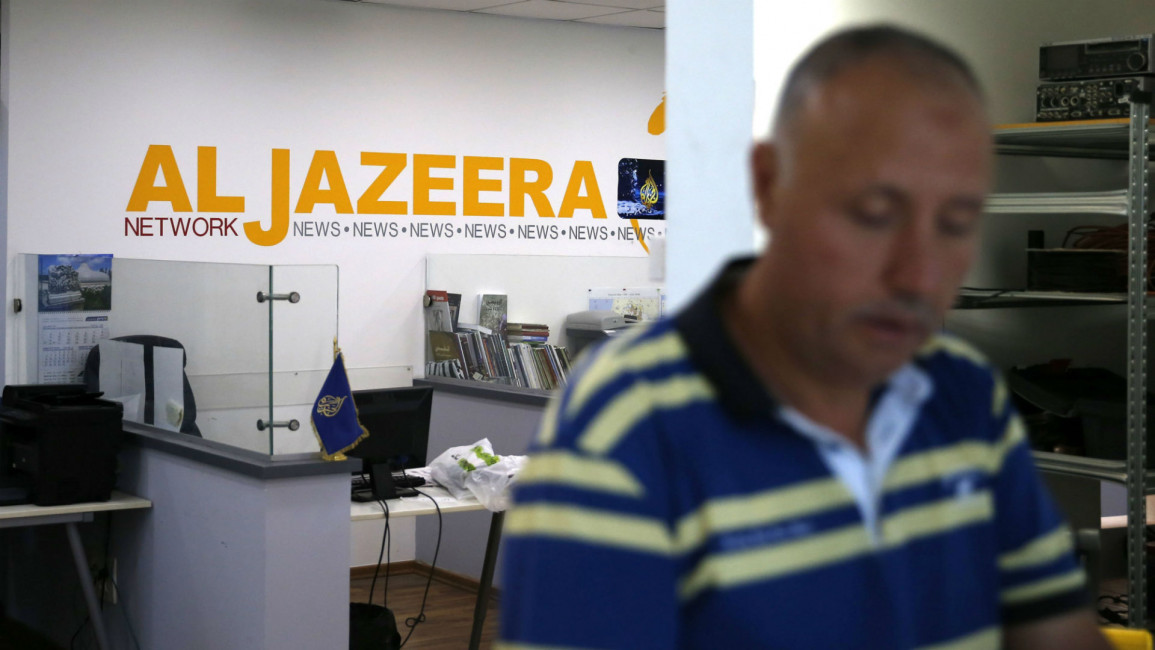Al Jazeera says Sudan withdraws journalists' work permits
In a statement late on Monday on the Arabic language Facebook page of its Sudanese channel, the channel said its Khartoum office was told the decision was made after a review of the work of Osama Said Ahmed and Ahmad al-Ruheid, as well as cameraman Badawi Bashir.
The channel says that the men had previously had their permits approved for 2019 by the government Press Council.
A month of protests in Sudan, which began over the failing economy but led to calls for President Omar al-Bashir's removal, has faced a media blackout by authorities, who control the press.
Al Jazeera has been reporting on the unrest and sometimes broadcasts protests live.
The Qatar-based channel was instrumental in covering the protests of the Arab Spring wave of uprisings that toppled a number of regimes in the region, leaving many governments nervous about allowing it freedom of work.
Sudan has also frozen the credentials a journalist working for Saudi-owned Al Arabiya who was briefly detained this month over his coverage of anti-government protests, according to Reuters.
The Sudanese protests began on December 19th in the north-eastern town of Atbara, triggered by the government's decision to increase the price of bread by about three times. They quickly spread to the capital and other major cities, with protests reported in Darfur, a bastion of support for the government.
The protests have emerged as the biggest challenge yet to the authority of President Bashir, who swept to power in 1989 in an Islamist-backed coup.
Riot police and Sudan's feared National Intelligence and Security Service (NISS) have led a sweeping crackdown on the protest movement that has seen several opposition leaders, activists, journalists and protesters jailed since the demonstrations erupted.



